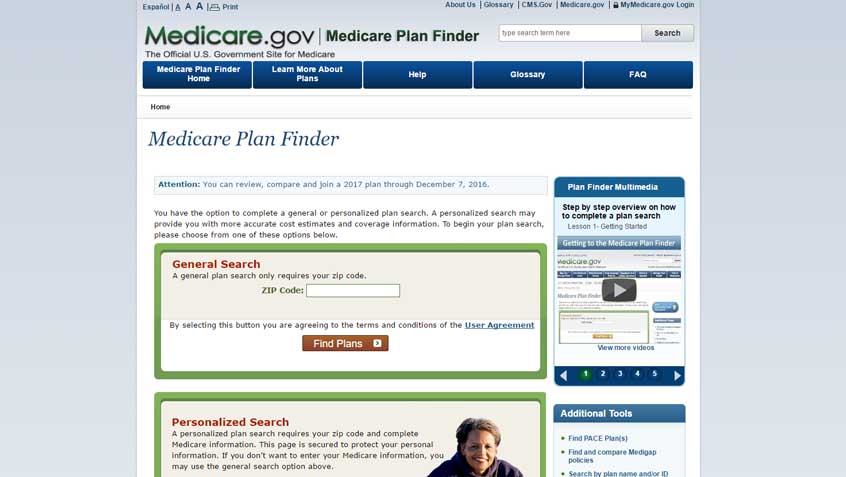This week, Kaiser Health News (KHN) and National Public Radio (NPR) published and broadcast the story of 44 year-old Drew Calver, a high school teacher in Austin, Texas who faced an outrageous hospital bill.
In the wake of a life-threatening heart attack, Mr. Calver was rushed to a nearby emergency room, where he was admitted to the hospital and underwent surgery. The heart attack was a shock for Calver, an avid swimmer and triathlete. Adding to his surprise was the bill he faced afterwards: the hospital charged $164,941 for the surgery and four days in the hospital. His insurer paid the hospital $55,840. The hospital then billed Mr. Calver for the unpaid balance of $108,951.31.
Read More
This week, the Centers for Medicare and Medicaid Services (CMS) announced that, starting in 2020, Part D Plans and Medicare Advantage Plans with Part D will be able to include medications on their formulary for some FDA-approved uses, but not others. Currently, a plan can favor one drug over another by: including a medication on its formulary or not; placing it on a lower cost sharing tier; or putting coverage restrictions, like prior authorization, quantity limits, or step therapy on the less preferred medication. These rules apply uniformly to each drug, for all FDA- and compendia-approved purposes—the new rules do not.
Read More
This week, the Kaiser Family Foundation (KFF) released a data note on the Medicare Part D coverage gap, commonly referred to as the “donut hole.” The KFF data note breaks down the number of people with Part D who reach the various levels of coverage, what their average spending is, and how beneficiaries, drug manufacturers, drug plans, and the federal government split up the responsibility for various charges. Importantly, the note discusses the implications some future policy decisions may have on people with Medicare, including calls from manufacturers to decrease the amount they pay or proposals from the Trump Administration that would sharply increase the money people with Part D must spend.
Read More
Last week, the Medicare Rights Center submitted comments to the U.S. Department of Health and Human Services (HHS) on Medicaid waiver proposals from Kentucky and Mississippi. Both states are seeking the agency’s permission to require low-income, “able-bodied” adult residents to work, volunteer, or train for a job in order to maintain their Medicaid coverage.
In both sets of comments, we express our concerns that the proposed changes would undermine access to health care for low-income people who are not yet eligible for Medicare, including older adults and people with functional limitations or chronic conditions. Such individuals may not be administratively classified as “disabled”—and therefore exempt from the work requirements—but they may nevertheless face significant health challenges that drive unemployment or underemployment.
Read More
Last week, the Medicare Rights Center submitted comments on new federal marketing guidance that will apply to Medicare Advantage (MA) and Part D prescription drug plans in 2019.
The Centers for Medicare & Medicaid Services (CMS), the federal agency that oversees the Medicare program, updates and releases marketing guidance every year so that MA and drug plans have current, uniform rules for marketing their products safely and accurately, without discriminating against people with Medicare. Some years see minor tweaks to the rules, but other years, like this one, see wholesale changes in how plans may be marketed.
Read More
People with Medicare face significant health risks because they do not have access to medically necessary dental care. There is an ongoing effort to urge CMS to use their existing administrative authority to allow this coverage, and we need your help!
Ask your members of Congress to sign on to letters asking CMS to provide Medicare coverage for medically necessary dental care, as authorized by law.
Read More
According to a recent study featured in the New York Times, bankruptcy among older Americans is on the rise. The rate of people age 65 and older filing for bankruptcy is three times what it was in 1991, and this group now accounts for 12% of all filers, a far greater share than in 1991 (2%).
Driving the surge, the study suggests, is a three-decade shift of financial risk from government and employers to individuals. This pattern—which includes people waiting longer for full Social Security benefits, employers replacing pensions with defined contribution savings plans, and soaring out-of-pocket health care costs—has transferred many of the health and economic challenges associated with aging onto older adults.
Read More
This week, the Centers for Medicare & Medicaid Services (CMS) announced that next year, Medicare Advantage (MA) Plans will be able to limit options for people who get Part B-covered drugs by using many of the same tools plans currently use in Part D. The Trump administration argues that this will enable plans to negotiate better prices for the “preferred” medications – those that the plan will cover as a first-line treatment. Other drugs will only be covered if a person tries the preferred medication first and it doesn’t work or causes them harm, also known as step therapy.
Read More
This week, the Trump Administration issued a final rule expanding the availability of “short-term” health plans that do not have to comply with the Affordable Care Act’s (ACA) consumer protections and coverage requirements.
In particular, short-term plans are free from the ACA’s insurance regulations–including the mandate to cover essential health benefits like maternity care, prescription drugs, and mental health treatment—as well as from the health law’s consumer protections that prevent insurers from charging sick people more than healthy people, excluding coverage of pre-existing conditions, and denying coverage based on medical history.
Under the final rule, these policies will now last up to 12 months, and consumers will be able to renew them for a maximum of 36 months. Previously, the plans were limited to three months and were not renewable.
Read More
This week, the Centers for Medicare & Medicaid Services (CMS)—the agency that oversees the Medicare program—announced that premiums for Medicare Part D, an optional benefit that provides prescription drug coverage, will be slightly lower for 2019. The average 2018 premium for basic coverage is $33.59, and the projected average for 2019 will be $32.50.
CMS suggests that increased competition and changes in cost sharing are the main reasons for the reduction. However, the drop may more likely reflect changes that Congress made earlier this year that shifted some of the costs for medications in the “donut hole”—a coverage gap in the program where costs for beneficiaries historically increased sharply—away from drug plans and onto manufacturers.
Read More









